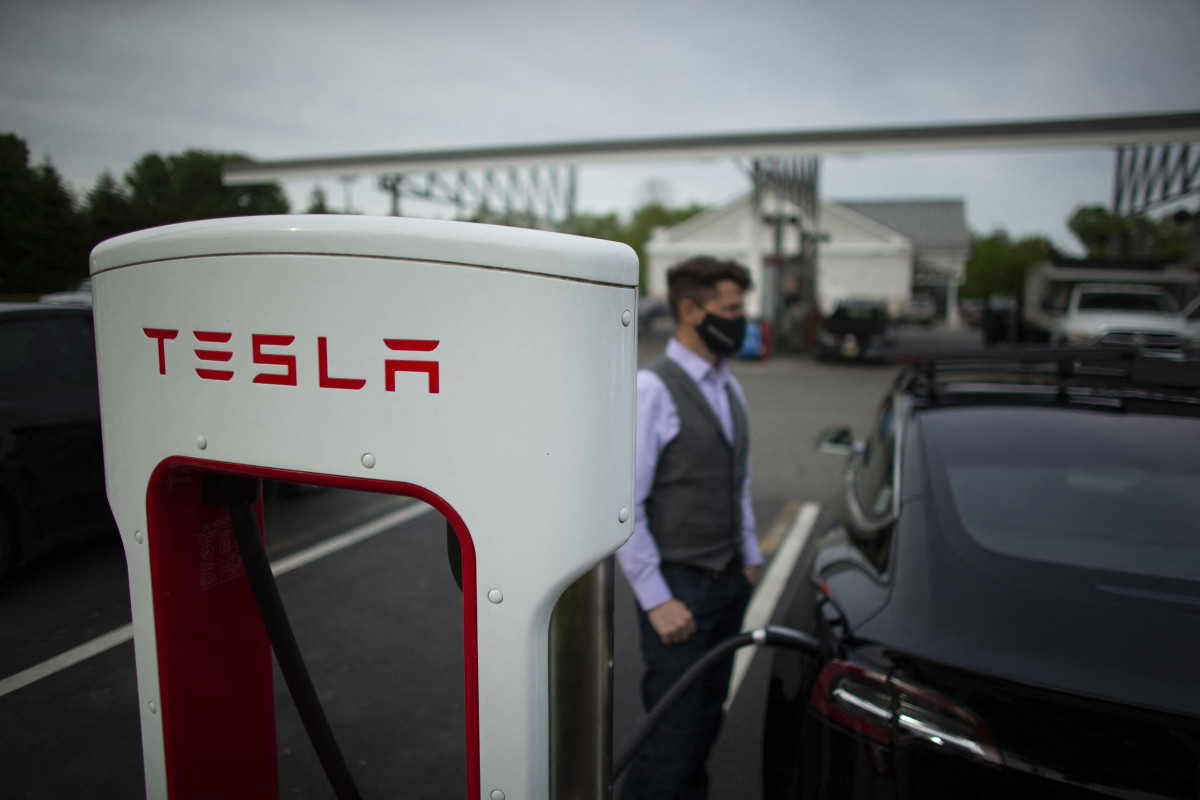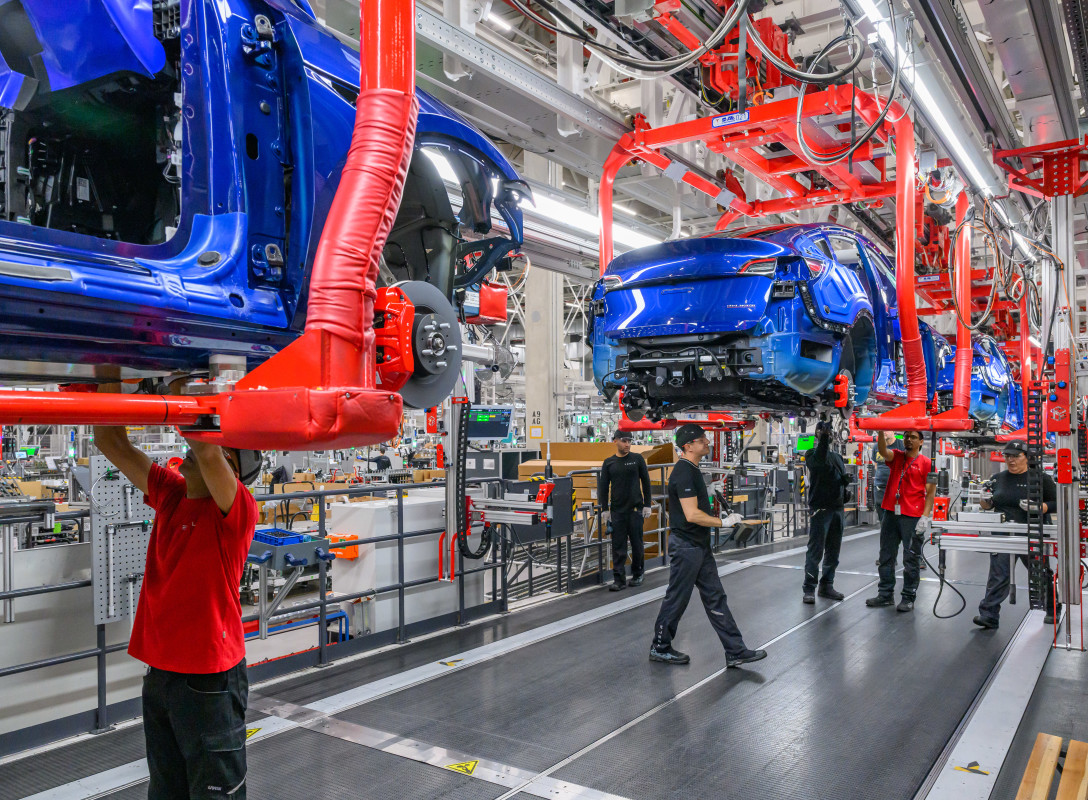
It was a scheme that seemed perfect for this duo.
Imagine this scenario: Tesla (TSLA) buys the EV battery manufacturing manufacturer you work for in Canada.
💰💸 Don’t miss the move: SIGN UP for TheStreet’s FREE Daily newsletter 💰💸
You and your friend know intimately about the technological advantage Tesla is purchasing the company to obtain, and you and your friend use that knowledge to your advantage to try and flip a quick buck and start a new company in China selling said technology.
It sounds like the perfect heist, but unfortunately, it was only a matter of time before the scheme was uncovered, and now the pair will have to pay for the consequences of their actions.

A former Tesla contractor gets sentenced to jail time
According to the U.S. Department of Justice, Klaus Pflugbeil, a former Tesla contractor, was sentenced on December 16 to 24 months in prison for stealing trade secrets from the Elon Musk-led automaker to establish a competing firm.
Pflugbeil, a 59-year-old German-Canadian resident of Ningbo, China, pleaded guilty in June to the Feds accusation that he and business partner Yilong Shao passed off Tesla’s battery manufacturing secrets as their own to undercover FBI agents.
Shao remains on the run from authorities and is believed to be in China. The People's Republic of China has no extradition agreement with the United States.
“In stealing trade secrets from an American electric vehicle manufacturer to use in his own China-based company, Pflugbeil’s actions stood to benefit the [People’s Republic of China] in a critical industry with national security implications,” U.S. Assistant Attorney General Matthew Olsen said in a statement.
Ripping off Tesla's battery secrets
Pflugbeil's two-year prison sentence resulted from a complaint involving the theft of Tesla-owned proprietary technology, specifically precision dispensing pumps and other equipment used on high-speed battery assembly lines.
Though the filed complaint does not explicitly mention Tesla by name, it does say that both Pflugbeil and Shao worked at a Canadian company called Hibar Systems, which developed technology that was bought in 2019 by “a U.S.-based leading manufacturer of battery-powered electric vehicles and battery energy systems."
According to Electric Autonomy Canada, Tesla purchased the Richmond Hill, Ontario, Canada-based Hibar Systems in 2019. Court documents show that by the end of 2019, Pflugbeil and Shao conspired to establish their own business using "original documents" and "drawings" they had gathered while working at Hibar and Tesla.
"[We] have all of the original assembly drawings by PDF," Shao confirmed to Pflugbeil, as per DOJ court documents.
In a statement by Justice Department and FBI officials, Breon Peace, the U.S. attorney for the Eastern District of New York, said that Pflugbeil and Shao established a business in China in mid-2020 that copied Hibar and Tesla's EV battery manufacturing equipment.
Prosecutors note that the business later expanded to Canada, Germany and Brazil.
In publicly available information on the business social media website XING, Pflugbeil is listed as a "partner" for Ningbo Psycho Machine Co. Ltd., a company based in Ningbo, China.
Related: Feds accuse enterprising duo of stealing and selling valuable Tesla IP
"[Pflugbeil and Shao] built a business in China to sell sensitive technology that belongs to a U.S. company. His actions were bold—he even advertised that he was selling the victim’s products—because he thought, incorrectly, that he was outside the reach of U.S. prosecutors," stated United States Attorney Peace.
According to the Justice Department statement, Pflugbeil went as far as marketing the business as an alternative to Tesla's, even buying digital ad space on Google, YouTube and LinkedIn that "were shown tens of thousands of times per week.";
The DOJ also noted that Pflugbeil even cold-messaged potential partners on LinkedIn.
"Hello [name], I hope to get some of your busy time. As I like to introduce our company to you. We already have supplied companies such [a]s [list of U.S. Fortune 500 Companies by name]," LinkedIn messages from Pflugbeil read, according to the DOJ.
"We engineer and manufacture all of our products in-house, and we warrant that none of our products infringe any patents, copyrights, or other intellectual property rights of any third party."
More Business of EVs:
- The Kia EV9 is crushing the competition
- Tesla's biggest rival has a huge problem no one is talking about
- Move over Ford, this EV might be the new popular police car
According to the DOJ, the duo came into the Federal radar after undercover agents met Shao at a trade show for the packaging and processing industries in Las Vegas in September 2023.
The agents, posing as businesspeople, established a relationship with them based on their interest in purchasing a battery production line for use in a battery manufacturing facility on Long Island.
The agents established a relationship with Pflugbeil and Shao through their social engineering.
In November 2023, Pflugbeil sent the agents a proposal for a battery production line that contained Tesla’s IP, which it quoted as costing close to $15 million.
On March 19, undercover federal agents took Pflugbeil in a sting operation disguised as a sit-down meeting on Long Island to negotiate a deal for the equipment.
According to the DOJ, the duo made over $1.3 million with the IP they took from Tesla before being caught.
Tesla, Inc. is traded on the NASDAQ as TSLA.
Related: The 10 best investing books (according to stock market pros)







